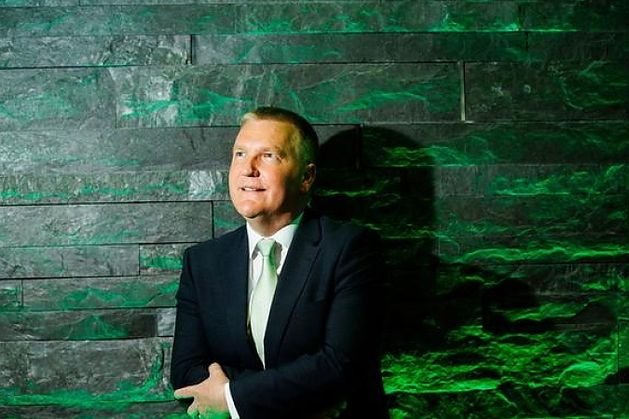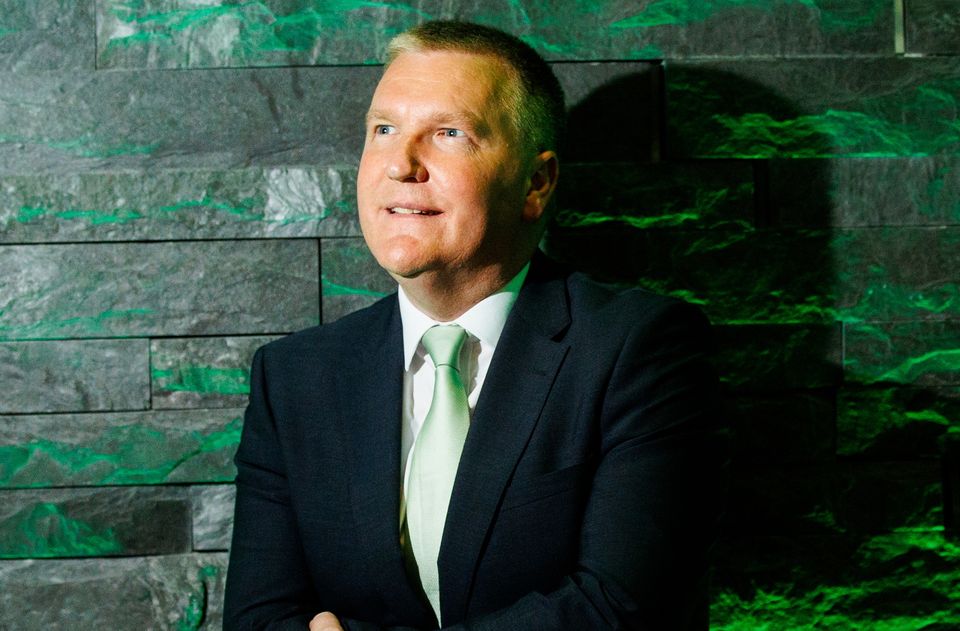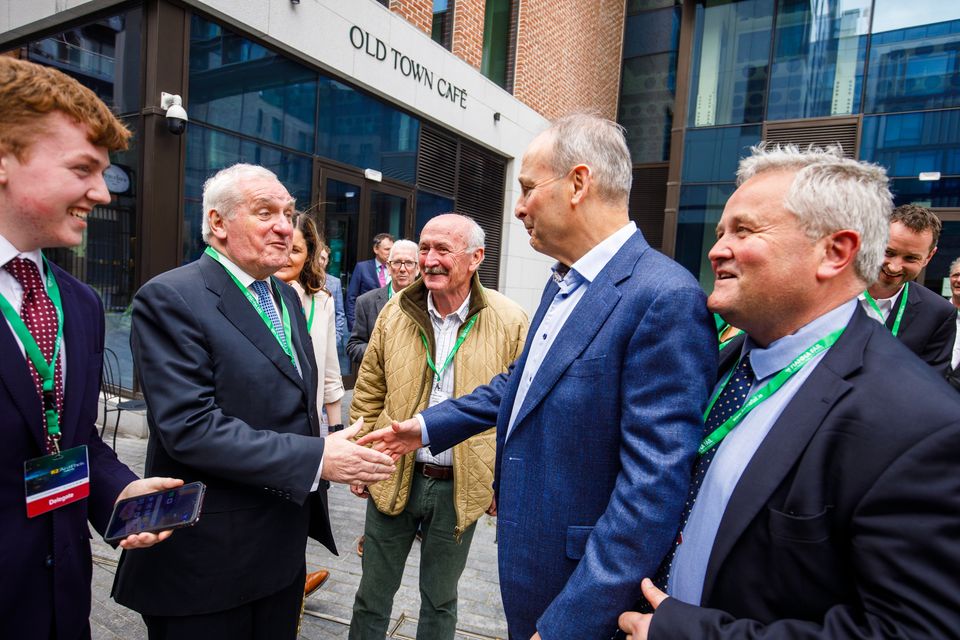Pension boost of at least €12 a weekTax cuts to include reductions to USCIncrease in the entry point for top rate of tax
Mr McGrath said pensioners would not see a “step back” on last year’s increase in social welfare rates which went up by €12 — but he suggested that the one-off payments introduced to combat record level of inflation were unlikely to be rolled out again.
The State pension in Ireland for a person aged 66 or over is currently €277.30 per week.
Speaking exclusively to the Sunday Independent at the Fianna Fáil ard fheis in Dublin yesterday, he said: “If you’re not doing extra payments, then you have to do the very best you can on the core weekly rate and we will be doing that.”
He wants to the first €20,000 a worker earns to be entirely ‘exempt from tax’
The minister also said “significant” tax cuts, including further reductions in the Universal social Charge (USC), were on the table ahead of the Coalition budget negotiations.
“On the basis that our economy continues to perform well, and that we manage the public finances responsibly, we will be able in Budget 2025 to have a substantial income tax package, and a strong social welfare package, and also to invest more in public services,” he said.
He also revealed he wants to “get to the point” where the first €20,000 a worker earns is “exempt from income tax” entirely, and wants to increase the entry point for the higher rate of tax.
Finance Minister Michael McGrath. Photo: Mark Condren
Mr McGrath said he wants to reduce the PRSI rate that employers pay for employees on the minimum wage, from 11pc to 8.8pc. He said the move will cost around €50m but he wants to make the change before the next budget.
He also said he will seek to increase the €750 rent tax credit in the budget.
The minister said Europe is entering a “more normal level of inflation”, which is a “good thing overall” — but said this means he will have to do “the best we possibly can” on increasing the weekly rates on payments for pensioners, carers and people with disabilities.
Mr McGrath said the entry point for the top rate of tax, which currently stands at €42,000, will be increased when he announces his tax package for Budget 2025.
He said the country needs a “competitive” personal tax system, because Ireland’s high level of income tax is regularly raised with him in his talks with international investors.
The minister wants to increase the entry point for the higher rate of tax
“If we can’t get the key decision-makers to come to Ireland, then the jobs and the investment won’t follow — so we have to be competitive internationally, as well as allowing people to keep as much of the money they’ve earned as possible,” Mr McGrath said.
“I think the combination of increasing the tax credits, and increasing the entry point to the standard rate of income tax plus making changes to USC, including the rate cut that we did last year — I think that was a very effective combination.
“It ensured that low- and middle-income workers got a fair benefit from the overall package. A lot of middle- income earners are now gaining €700 or €800 per annum,” he added.
Mr McGrath said the size of the Government’s budgetary package will be revealed in the Summer Economic Statement, which will be published in the coming months. However, he insisted his focus remains on ensuring workers can “keep as much of their hard-earned money as possible”.
He said the €100 increase in personal tax credits in last year’s budget was effective, because “it benefited all earners”.
Tánaiste Micheál Martin with former taoiseach Bertie Ahern at the Fianna Fáil ard fheis in Dublin. Photo: Mark Condren
The minister said he wanted to ensure the first €20,000 a worker earns is tax-free, but said he would have to introduce income tax cuts and tax credit increases of €125 per person to achieve this.
Mr McGrath said he could not commit to the measure, but added that he believes this is the direction the Government should pursue, even if it takes a number of budgets to implement it.
“I think it’s about a mix of credits — because everybody benefits from them — and also about increasing the entry point.
“There is a very significant step effect in our income tax system. The tax rate goes from 20pc to 40pc at a certain threshold, and that threshold is still well below average full-time earnings in Ireland.”
Mr McGrath said he wants to increase the €750 rent tax credit for a “number of years into the future”, but will see what resources he has before he commits to increasing it.
“I certainly want to give renters the certainty that that credit will remain in existence,” he said.
The minister said he plans to extend the Help to Buy scheme beyond 2025 to ensure there is support for first-time buyers and developers.
He said he would not decrease or increase tax relief on pension contributions but suggested Sinn Féin wanted to cut it.







